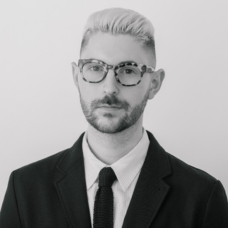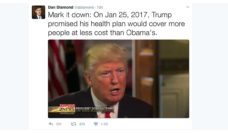Public Health Post: You last spoke with Public Health Post in 2017 after having interviewed President Obama about the Affordable Care Act (ACA). What are your predictions about the Biden Administration successfully protecting and building on Obamacare?
Sarah Kliff: Well, it’s come a little full circle since then, since we’re talking right after President Biden’s inauguration. What I do expect is them to move forward on the suite of changes the Democrats have really wanted to make to the Affordable Care Act. Generally, this is all in the category of making health insurance more affordable and doing that by giving people bigger subsidies.
This is something we’ve already seen President Biden tackling in his first stimulus plan, that $1.9 trillion stimulus. There’s a sentence in there, and it’s only a single sentence, but it would be quite important to the Affordable Care Act that would strengthen subsidies, basically make hiring some people eligible for subsidies who are not currently eligible and give stronger subsidies to lower-income Americans. I think those are the type of changes that are quite likely to happen. If you start getting into bigger ideas – a public option – or if you want to go biggest – Medicare for All – I think those ones will struggle a little bit. I think something that has quite good odds of passing are increasing the ACA subsidies.
Since our conversation in 2017, you transitioned from serving as a senior correspondent at Vox to serving as an investigative reporter at The New York Times. One of the issues you continue to cover is high health care costs. What does it say about the political environment and the health care system in the US that you still have to report on these issues?
It’s kind of a never-ending series of stories. That’s really even been true through coronavirus, where you have patients with coronavirus encountering all sorts of odd bills. I think it’s still quite true that the United States has the highest prices in the world. There is little political appetite to tackle that because you have such strong interests in favor of those high prices. That being said, there is a bit of a glimmer of hope in legislation that passed at the end of this year. This new ban on surprise medical billing is something that actually will tackle costs, possibly in a significant way.
Which policy solutions should Congress and the Biden Administration implement to improve accessing affordable healthcare in this country?
If you look at pretty much any survey of marketplace enrollees, the biggest complaint is always affordability. The premiums are too high. The deductible is too high. I think that’s really what they’re going to be tackling first. The other area is how to deal with this Medicaid gap situation where you still have about a dozen states that haven’t expanded Medicaid. You have millions of people living in those states. Texas and Florida are responsible for a lot of the remaining uninsured in the United States. There isn’t quite as clear of a policy solution to that, but I think that is one that they’re going to be thinking about. If you can close that gap, you’re getting the Affordable Care Act a lot closer to the original goal of who it was supposed to give coverage to.
More than 400,000 people have died from Covid-19 in the US. As an investigative journalist, what were the first questions you started to ask about the government’s response to the pandemic?
I personally have been really interested in testing infrastructure and why it has struggled so much. It also intersects with a lot of the work I do on billing because a lot of this is running through health insurance, so it’s a little bit different than most other countries. Here, when you go to the doctor, they’re likely going to bill you for it, and you could get some surprise. I think that’s been a really ripe area of investigation that I’ve been focused on.
Right now, I’m starting with my colleagues to look at vaccine distribution. One of the things I’ll probably be focused on, because it kind of fits into my reporting space, is if people are facing costs for their vaccines. They’re not supposed to, but there’s many instances where you’re not supposed to get billed for something in healthcare, but you inevitably face a bill.
You are a leading health policy journalist who has spent years covering legislative developments. How do you see journalists overcoming the pressing challenges of fake news, misinformation, and plandemics that many Americans buy into?
It’s become more and more of a challenge the longer I’ve been a reporter and the more widespread that kind of misinformation gets. For me, what I really try and do is give the best information that I can in hopes that it’s going to be credible. It’s much harder to do the job that I do when people can really curate their news environment.
What are your thoughts on the evolving relationship between healthcare and public health? How has it evolved given the last year?
I think the coronavirus has kind of exposed and laid bare how public health and healthcare often are thought of as two separate entities in the US, but actually, when you have something like a coronavirus pandemic, they need to work much closer together. It will be interesting to see if going through this pandemic changes that relationship because I think it’s really shown a lot of the weaknesses. It shows how much weaker it leaves us as a country if you don’t have that strong connection between the people providing healthcare and the people doing the public health work.
Photo courtesy of Sarah Kliff














